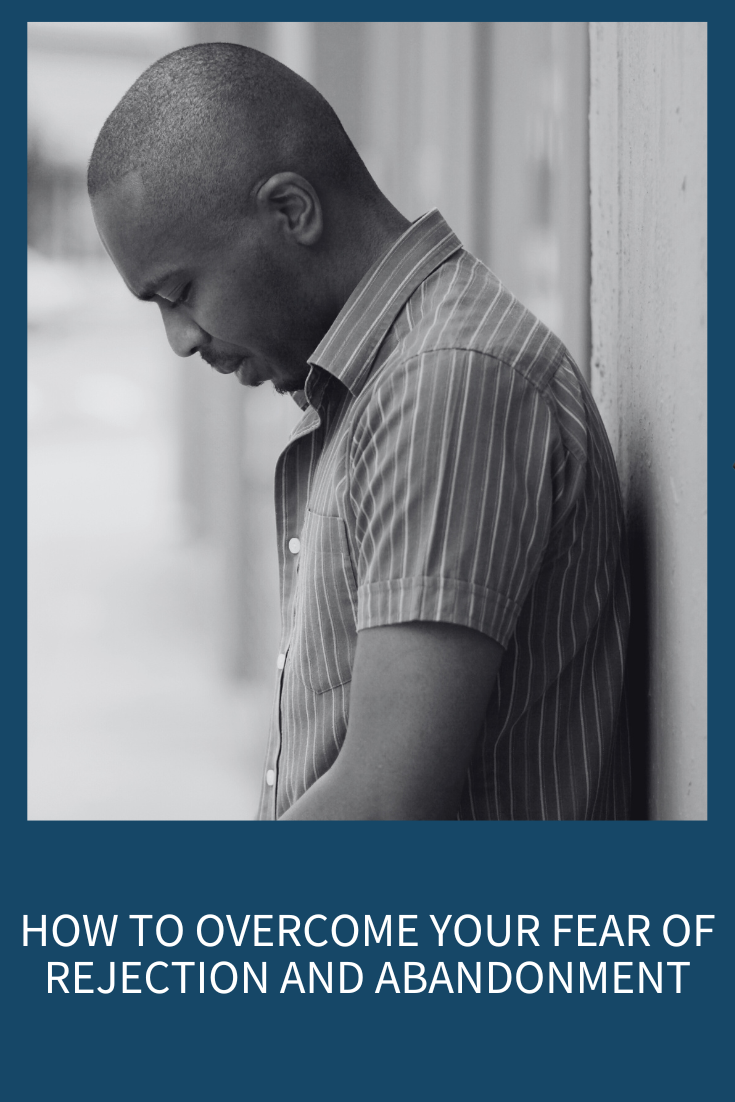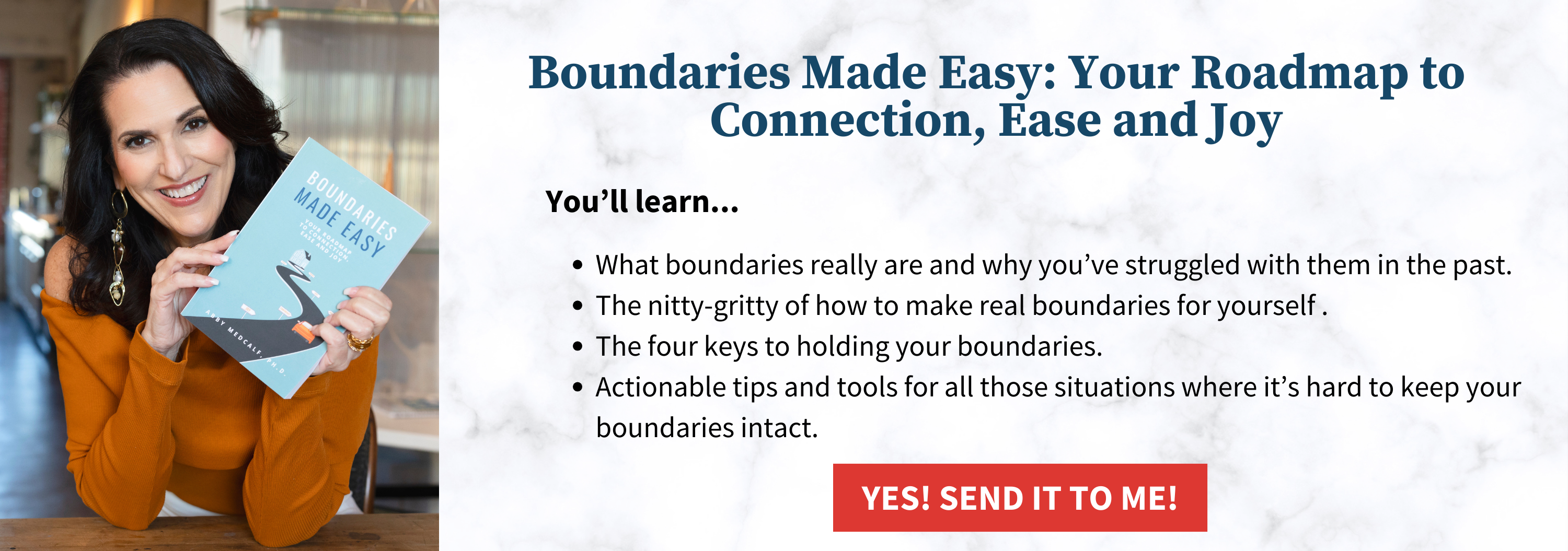
If you have abandonment issues, you have a persistent fear of rejection or isolation in your relationships. This means you struggle with trust, codependency, healthy boundaries, and insecurity which, of course, negatively impacts your interpersonal relationships and leaves you feeling anxious, depressed and resentful. Today we’ll be talking about the signs you might be missing, the core issues behind your fears, and my top three strategies to overcome your fear of rejection and abandonment.
7-minute read
Rejection Sensitivity vs. Regular Rejection
Let’s talk first about rejection sensitivity versus regular old rejection. Rejection Sensitivity (RS) is a heightened emotional reaction to some perceived rejection or criticism. Unlike regular rejection, which everyone experiences from time to time, rejection sensitivity involves an intense fear and anticipation of rejection that significantly impacts your behavior and mood. People with high rejection sensitivity often interpret neutral or ambiguous social cues as signs of rejection, leading to heightened anxiety and avoidance behaviors.
7 Signs (from the Research) You May Have a Fear of Abandonment or Rejection
Fear of abandonment or rejection can manifest in many different ways. In fact, you may have this fear but never realized that this was a core issue for you!
- Clinginess, Neediness and People Pleasing: People with a fear of abandonment are often seen as clingy and needy. They seek constant reassurance and validation from others to feel secure in their relationships. This can involve excessive texting or calling and a strong desire to be physically close to the ones they love. They may go out of their way to please others, often at the expense of their own needs and wants. They fear saying no or setting boundaries, worrying it might lead to rejection.
- Over-Sensitivity to Criticism: If you have rejection sensitivity you’re highly sensitive to any form of criticism or negative feedback. In fact, you might even interpret mild critiques as personal attacks or signs that you’re being rejected.
- Avoidance of Intimacy: While some people become overly dependent, others avoid intimacy altogether as a protective mechanism. They fear getting close to others because they worry about eventually being rejected or abandoned.
- Jealousy and Possessiveness: Excessive jealousy and possessiveness can be signs of fear of abandonment. If you’re constantly concerned about your partner’s interactions with other people (ultimately fearing you’ll be replaced or abandoned), then you likely have a fear of abandonment.
- Difficulty Trusting Others: Generally mistrusting others is common. You believe that people are unreliable or will eventually leave, which makes it difficult to form and maintain relationships.
- Being a Perfectionist: Some people develop perfectionistic tendencies as a way to avoid rejection. You’re trying to meet exceptionally high standards so no one has a reason to reject or abandon you.
- Emotional Volatility: Intense emotional reactions, such as sudden outbursts of anger or deep sadness, can indicate a fear of abandonment. You might react disproportionately to situations you perceive as signs of potential rejection.
Why Do People Struggle with Fear of Rejection and Abandonment?
There are three main reasons why you might be struggling with a fear of abandonment or rejection in your relationships.
Reason #1: Your Attachment Style
The attachment style you developed in childhood plays a crucial role in shaping your response to rejection and abandonment. Insecure attachment styles, such as anxious or avoidant attachment, often stem from inconsistent or unavailable caregiving and usually lead to heightened fears of rejection in adulthood.
Identity your attachment style and how it impacts your relationships.
Reason #2: Past Trauma
Unhealed trauma including emotional neglect, abuse, or previous significant rejections, can lead to an intensified fear of rejection and abandonment in your current relationships. I’ve done previous episodes on how you might not realize you have unhealed trauma, how childhood trauma affects your adult relationships and trauma bonding so make sure you go back and listen if trauma is an issue for you.
Reason #3 Low Self-Esteem
The research shows that people with low self-esteem are more likely to fear rejection and abandonment. They often perceive themselves as unworthy of love and approval, leading to heightened sensitivity to any signs of rejection.
Check out these 8 ways to build your confidence and self-esteem.
Three Strategies to Overcome Fear of Rejection and Abandonment
Fear of rejection and abandonment is a complex issue rooted in your past experiences, attachment style, and self-perception. While I’m going to lay out my top tips here, I also want to recommend that you work with a qualified therapist if this has been a long-term issue for you.
I also need to say (yes, again) that you’ve got to practice mindfulness. If you’re not aware in the moment of the thoughts and subsequent feelings that are taking over, you won’t be able to combat them when the time comes. I can teach you all the best tools in the world, but if you’re not aware in your moments, they’re not going to help you.
Strategy #1: Practice Cognitive Reframing
At its most basic level, cognitive reframing helps you looks at a situation, person, thought or feeling from a different perspective. It’s a strategy that helps you open your mindset to a new point of view, a new angle on what’s happening so you can think differently about it. This is crucial because you feel the way you think. So, changing your thinking about something will change your feelings about it. The thoughts you think and the subsequent emotions that you feel are almost always rooted in old, negative patterns that you’ve had since childhood. These ways of thinking and coping likely served you in some way then, but they definitely don’t serve you now.
When you get a new perspective on something by reframing, you can finally change those old patterns, gain control over your thoughts and feelings and start feeling better! Remember, a habit is just a thought you’ve had over and over again. You can absolutely create new patterns of thought that become new, healthy habits.
You’ve heard me say before that life is happening for you, not to you. That’s a quick example of a cognitive reframe. Thinking of problems as challenges is another cognitive reframe. Because I love you so much, I’ve created a quick (and free), one-page handout laying out the three steps to cognitive reframing. You can download that or listen to my episode on how to stop overthinking and let things go that bother you where I also discuss these steps (but in much more detail)
Strategy #2: Work on Your Self-Compassion
Practicing self-compassion involves treating yourself with kindness and understanding, especially in moments of perceived failure or rejection. The research shows that building self-compassion will help you build resilience and reduce the emotional impact of rejection. I’ve done a whole episode on self-compassion. I’ve got a chapter in my latest Boundaries book dedicated to it, so there’s plenty of great information you can check out to get better at self-compassion. I also want to recommend listening to my Loving Kindness Meditation at least twice a week for the next month to really build those self-compassion muscles.
Strategy #3: Get Better at Your Emotional Management
The research shows that learning and practicing emotional regulation skills will help you manage the intense emotions associated with rejection sensitivity and abandonment. In episode 208 of the podcast The Secret to Managing Your Emotions: A Step-By-Step Guide, I go deep and nitty gritty on how to learn to manage your emotions. There are many strategies, from straw breathing to meditation to journaling to progressive muscle relaxation that I outline in that episode. I want you to go check it out because, depending on the individual way you react to stressors, certain tools might or might not work. In fact, some tools might even be harmful for you to try.
In that episode, I outline the different ways people react to stressors and the particular coping tools that work for that individual, so I don’t want to list a bunch here since I’m not sure what will work for you. There’s also a chapter in my Boundaries Made Easy book dedicated to learning how to manage your emotions (so this might be a sign that it’s time to get that book if you haven’t yet)!
Resources and Research for How to Overcome Your Fear of Rejection and Abandonment
The Three Steps to Cognitive Reframing Worksheet
How Your Attachment Style Affects Your Personal Relationships
You Might Not Realize You’re Suffering from Unhealed Trauma
How Childhood Trauma Affects Relationships
Are You Trauma Bonding in Your Relationships and Don’t Realize It?
Eight Ways to Build Your Confidence and Self-Esteem
Is Self-Compassion the Secret to a Happy Relationship
How to Stop Overthinking and Let Things Go that Bother You
Loving Kindness Guided Meditation: Finding the Love
The Secret to Managing Your Emotions: A Step-By-Step Guide
Boundaries Made Easy: Your Roadmap to Connection, Ease and Joy:
Self-Compassion: The Proven Power of Being Kind to Yourself by Kristin Neff








